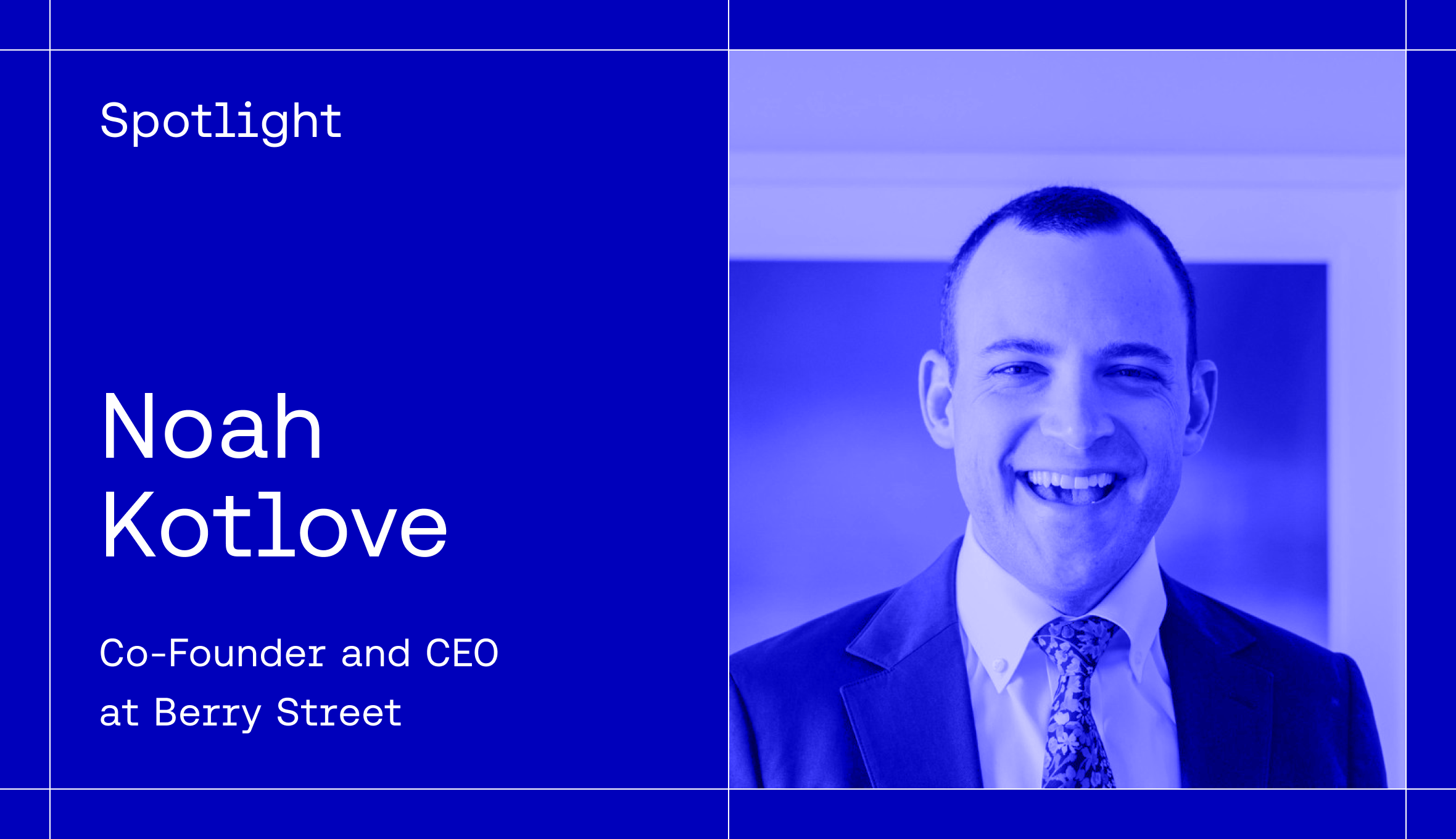Berry Street becomes a data-driven org on Equals
Abbey Lauren Minondo | | 3 min read

“Our team doesn’t come from Wall Street, but on Equals we can all be analysts. The value we received from the product was massive and immediate: in minutes, we were able to view and manipulate data previously inaccessible to us. The utility we get every day from Equals is invaluable, I can’t even put a number on it.” – Noah Kotlove, Co-Founder
Discovering the opportunity
Berry Street is a platform that connects patients with registered dietitians for 1-on-1 nutrition therapy that's 100% covered by most health insurance plans. Almost 70% of Americans have coverage to see a dietitian regularly for free, but most patients are unaware of this benefit, and dietitians don’t take advantage because of the complexities of contracting and billing with insurance. That’s where Berry Street comes in: ripping up the red tape and rolling out the red carpet for dietitian appointments.
Innovating in the rigid American healthcare system is challenging enough; before Equals, Noah and his co-founder Jesse were doing so while critical insights about their business were largely inaccessible. As two non-technical co-founders, extracting information about their operation was time-consuming with their healthcare tech stack. “We initially hired an engineer to get our data out of our inflexible EHR and into a PostgreSQL database, but neither of us know SQL very well, so we used Metabase to set up a few basic dashboards. It was a step in the right direction, but we were still unsatisfied with how cumbersome it was to answer simple questions about our business. That’s when we saw Equals on Product Hunt and tested it out. We were instantly hooked — not only could we query our data without SQL expertise, but we could also manipulate that live data into something immediately actionable.”
Implementing changes
Now the team at Berry Street uses Equals for recurring analyses and for answering ad hoc questions. “Every week we get even more sophisticated. We have several views that we rely on now that were impossible for us to see prior to Equals. Beyond having a daily pulse on the business, we can deep dive into every element we might have questions about. For example, in conversations with the team about our top-of-funnel acquisition – where we’d throw around characteristics we anecdotally ‘knew’ about our ICP – we can now discuss with actual data. We’re starting to create more highly-tailored views to help team members working on specific tasks. For instance, after a patient has an appointment with one of our dietitians, we need to file a claim with the patient’s insurance to get paid. Our EHR doesn’t tie claims to appointments, so our billing team previously had to go through each dietitian's historic calendar to check that a claim had been created for all appointments. In Equals, we can simply pull our appointments data and our claims data, and determine exactly which claims need to be filed in real-time. To quantify this a bit: the sooner we file claims, the sooner we get paid, and this view we were able to create in minutes on Equals now allows that team to file 5x as many claims in a given hour. That’s very real revenue for us.”
Favorite feature: “We’re just starting to scratch the surface with charts in Equals, but having those report out into Slack and relying on them as our de facto analytics dashboard is awesome. The main differentiator – being able to take SQL queries and layer on spreadsheet formulas to get to the insights you need, as quickly as possible – is killer for us.”
Unlocking growth
“We’re able to spin up really quick dashboards to help the team complete tasks faster. As CEO, I spent a ton of time during the fundraising process manually updating data. On Equals, I can easily pull the reports that I need and update them for our pitch deck regularly, without needing to re-do the same work every time. Being able to do the spreadsheet work once and then just query the data is fantastic. We often create models for fundraising purposes, only to retire them soon after – but on Equals, we can build models using real-time data and use them to fuel actual business decisions.”

By Abbey Lauren Minondo
Business Operations at Equals

